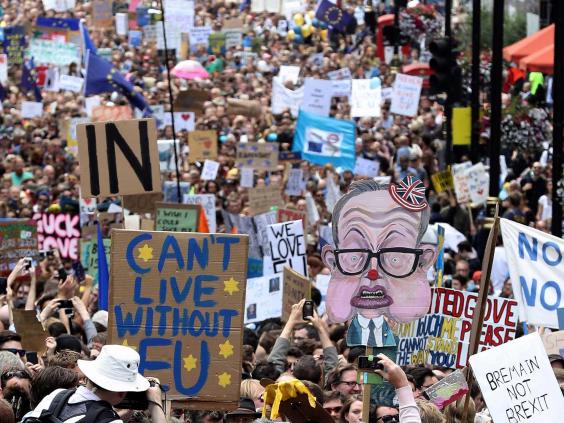The bad relations with the metropolitan elite are one reason for the fury but there are others.
The first is sheer frustration and the pressure of poverty. The poor don’t want to be given moral lectures by the comfortable. They have not benefited from that which the liberals preach. Watching their phrases, tempering their emotions, following the latest codes of speech has not made them any better off. Besides, they don’t think their own codes so bad. They are capable of supporting each other, nurturing each other, and of showing kindness to strangers. But those codes are vaguer, wilder, more lonely, more fiercely isolated than before the break up of the great industrial communities in the 80s.
The decline and dispersal of the working class as a self-respecting and striving force makes for sad history. It is documented in many places and there’s no point going over it here, Enough perhaps to suggest that we are beyond the 80s now, in a new, more desolate phase of development.
That which was common has been largely hollowed out leaving a mass without a body. People have moved from communities of redundancy to redundancy without community. Individuals have shifted from short term job to short term job. People split up, hitched up and split again. This was followed by the gig economy and zero-hours contracts. Nor was anyone promising a way back. The nationalised industries were not going to return in a hurry. The world had changed. Has changed.
*
In one sense it has became far larger and moved beyond our understanding. Money rushes round the globe looking for places to roost. It lands then moves on. If it doesn’t like a place it simply leaves. A country is no longer a sealed unit. It is a landing strip. The desolation of old working towns is the desolation of landing strips overgrown with weeds.
In another sense however, the world has grown smaller through personalised technology. Computers, smart phones, the internet: everything is available at our fingertips. But for all its great benefits - and there are many - the web, that can create real intimacies, is more apt to create virtual ones between presences not bodies. It also produces a terrain in which the individual is ubiquitous yet insignificant. You can shout and scream all you like, as loud as you like, into the web and no one will stop you. It does not assure you. It will not love you. It simply amplifies you and your voice. It has an enormous capacity to fill the world not just with news but with alternative news. It licences and offers a ready arena for fury.
*
Fury is not just a reaction to perceived contempt but to the fading and vanishing of the known and trusted: the village that has turned into a weekend home for the wealthy, the town where people speak strange languages and establish shops catering primarily for themselves, the city with its disorientating, ever-changing districts and accents.
The atavistic is the familiar. The familiar is what can be controlled. We must take back control. We must be ourselves, putting ourselves first. America first, was Trump's cry, but we can substitute whatever country we like for America. It is by taking back control that we might become great again, in our own clearly demarcated region of greatness, which is chiefly composed of popular half-memory and nostalgia which must be defended with all the fury at our disposal, lest they, whoever they are - liberals, faceless bureaucrats, foreigners - take it from us.

